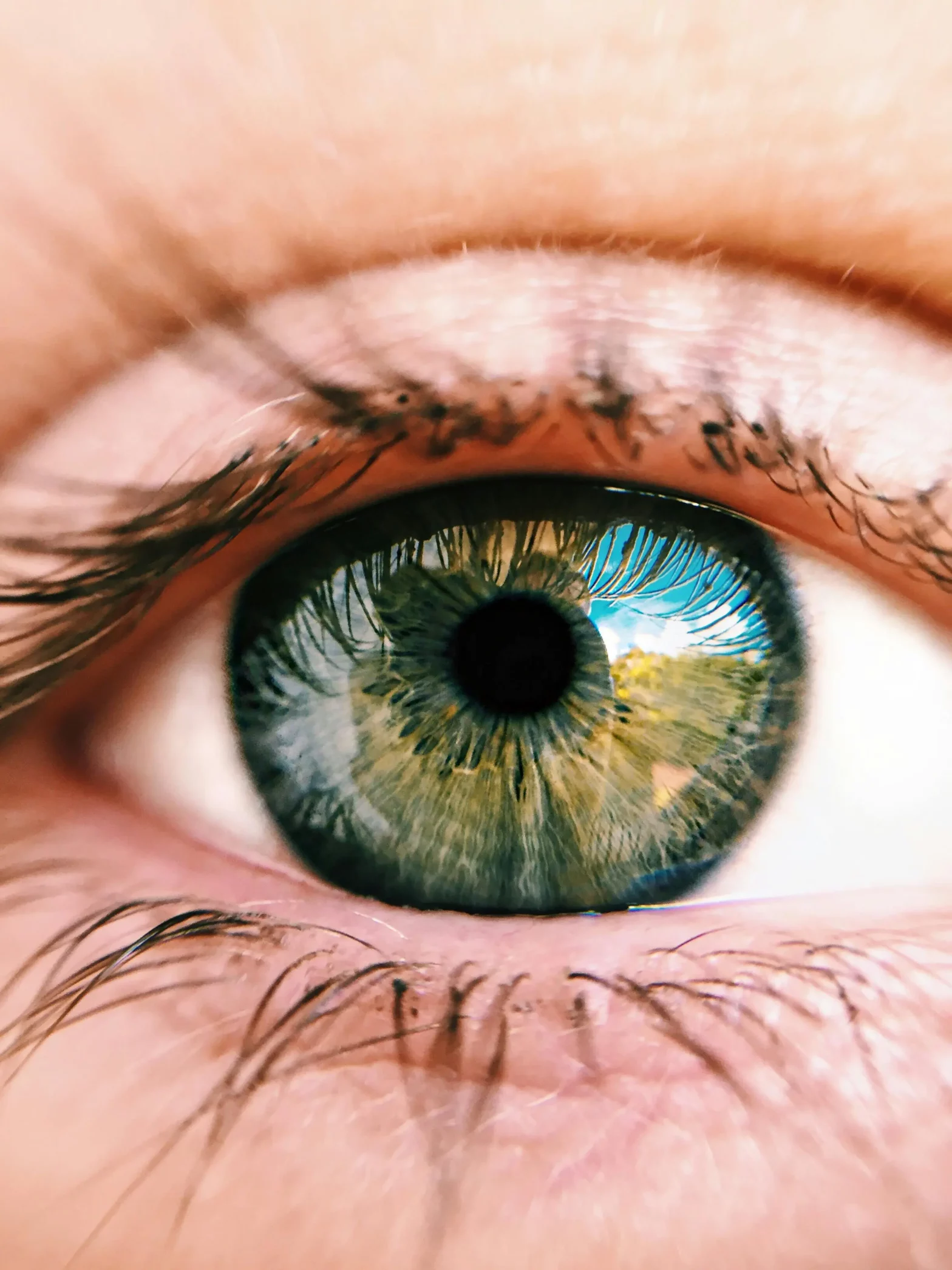Changes in eyes can signal vision problems, diabetes, stress, retinal detachment and other medical issues. The eyes are the only organ in the body where the blood vessels, retina and optic nerve can be seen, which is a part of the central nervous system. That is why annual eye exams are important. In addition to checking eyes for traditional eye aliments like cataracts, glaucoma, and age-related macular degeneration, there are a number of medical conditions that signal warning signs that need to be checked out.
Hypertension (High Blood Pressure) can cause bleeding of blood vessels in the back of the eye or twisted or curved vessels. Untreated high blood pressure increases the risk of stroke and heart attack and can cause the development of glaucoma or macular degeneration.
Diabetes can be detected with an eye exam. 1 in 4 persons do not know they have diabetes. Diabetes can cause fluctuations in vision, bleeding or swelling of the retina which can eventually lead to diabetic retinopathy. Early diagnosis of diabetes can prevent this condition.
High cholesterol can be diagnosed when there is a white, gray or bluish ring (fat deposits) around the edge of the cornea, which is normally clear. Soft flat growths around the eyelids can also be a sign of high cholesterol, which may raise your risk for glaucoma.
Thyroid disease can also be detected by looking at our eyes. Hyperthyroidism (overactive thyroid) can speed up metabolism, cause an irregular heartbeat, and cause bulging eyes. This is called Graves’ disease and is an autoimmune disorder where the thyroid produces more hormones than the body needs. Thyroid disease can also cause red, dry or watery eyes.
Temporary vision changes or persistent vision loss can be a sign of an oncoming stroke, or one that has already occurred. The loss of central vision could be an indication of a cerebral stroke and needs to be evaluated immediately. Although the loss of vision may be permanent, with timely assessment and intervention, a life threatening situation may be prevented.
Vitamin D Deficiency can cause redness, stinging, light sensitivity and night blindness and is important for good eyesight, especially in low light conditions. Vitamin D deficiency is the number one cause of preventable childhood blindness in the world and is prevalent in poor countries where diets lack the necessary vitamins and nutrients.
Lyme disease may also be detected with an eye exam. In early stages, there might be floaters or conjunctivitis. In later stages, the eyes’ optic nerve may be affected and result in vision loss.
Seasonal allergies is the most common reason for itchy eyes. If your eyes seem dry and you find yourself frequently rubbing your eyes, you may have allergies.
Infections are a common occurrence if you wear contact lenses. White spots on the cornea (the clear layer over the front of the eye) is an indication you might have an eye infection.
Twitching of eyes usually occurs we are fatigued, not getting enough sleep, or stressed out. Puffy and red eyes might be a sign you are just tired. Too much screen time watching TV, or working on your computer may be causing your eyes to strain and tear up from being too dry.
Night blindness is common among older people. If it is hard for you to see in low light, you might need glasses or have cataracts, which is a natural part of aging.
“Floaters” are the little specks that move around your field of vision and are relatively common. If you notice an increase in the number of floaters in your range of vision, this could be a sign of a retinal tear or detachment and should be checked out by your doctor.
If the whites of your eyes are yellow (jaundice), this is a warning sign that there is too much bilirubin (breakdown of red blood cells in your blood) and the liver is unable to filter the cells. This could be due to a bad diet, an infection, something blocking bile ducts, or alcohol related liver disease.
Please join us on September 5, 2024, from 1:00pm-2:00pm, for a presentation on Eye Conditions by Dr. Wahab, an optometrist. Dessert will be served. Please RSVP to the Parish Office at 586-254-4433 or Marilyn Cito, Parish Nurse at 586-254-4433 Ext.#320 or via email at MarilynC@stol.church.
Adapted from:
- WebMD, Eye Health, “What Your Eyes Say About Your Health,” Medically Reviewed 8/04/2020
- Healthy, “What Your Eyes Are Trying to Tell You, by Sheryl Kraft, Parade Magazine, October 11, 2020
- Good Housekeeping.com., 12 Things Your Eyes are Trying to Tell You About Your Health, by Mehera Bonner, December 18, 2017.


